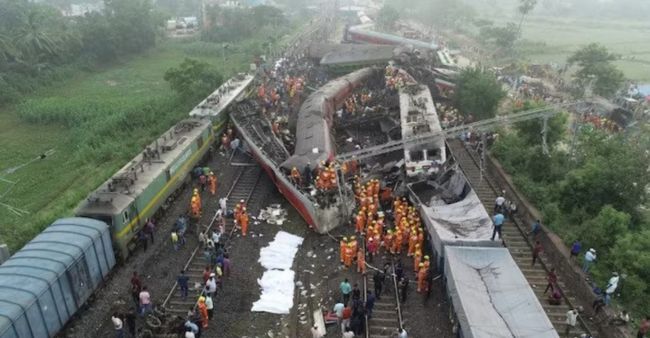New Delhi
Just two months before the tragic train accident in Balasore, Odisha, that killed 288 people and injured over 1,000, the Railway Board had flagged the issue of “short-cut” methods being adopted by the Railway staff repairing or maintaining the signalling system. This could potentially cause serious ramifications.
The Railway Board had termed these incidents as “alarming” and had directed all general managers of all zonal railways to monitor the safety aspect every week and take it up with the respective divisional railway managers (DRMs) every week during the review meeting.
The Sunday Guardian has accessed the letter sent on 6 April 2023 by the Railway Board to all the general managers of the zonal railways. In the letter, the Railway Board said, “Recently, five incidents on unsafe side involving points have taken place on various Zonal Railways. This is alarming and an issue of serious concern. The signalling gears were reconnected by S&T staff without proper testing of points after blocks for switch or turnout replacement, wrong wiring during preparatory works, attending signal failures etc.; such practices reflect dilution of manual and codal provisions. Same are potential hazards to safety in train operations and need to be stopped.”
The Railway Board further said that despite repeated instructions, the ground situation was not improving and the signalling staff were continuing to adopt “short-cut methods” for clearing signals without checking correspondence from the site and without proper exchange of disconnection/re-connection memo with the operating staff. The Railway Board also pointed out five instances between January and March 2023 where trains either got derailed or entered a wrong line because of the “short-cut methods” adopted by the signalling staff during the repair and maintenance works.
In January, Northern Railway train number 22454 Meerut City-Lucknow Rajya Rani Express, which was cleared for entering the Lucknow station, entered the washing line area after cables cut by the signal repairing staff were reconnected without testing.
In another incident reported from Northern Railway in February this year, train number 22480, Sarbat Da Bhala Express, derailed at Ludhiana station. Preliminary inquiry into the incident showed that “point 286 was reconnected without ensuring proper housing in reverse after TRR work”.
Another incident of derailment in the Central Railway was also pointed out in the letter where the train derailed at the Kharkopar railway station in Raigad district of Maharashtra, because the down line local which was signalled on straight route as it was cleared for entering platform number 1, derailed while it was passing over “emergency X-over 101”. The report further mentions that a preliminary inquiry revealed that “wrong wiring was done in the relay room during preparatory work for commissioning of the Auto section”. Similar reasons are also being attributed for the horrific and tragic train accident that happened earlier this month at the Bahanaga Bazar railway station involving three trains—the Coromandel Express, the Yeswantpur-Howrah Express and a goods train.
According to sources within the Indian Railways, the Coromandel Express hit a stationary goods train by entering a loop line, when it was signalled to go straight into the main line. Sources from Railways earlier told The Sunday Guardian that it was possibly due to a “wrong wiring” or “some wrongdoing” by the signalling staff that led to the malfunctioning of the signalling system, because of which, despite giving a green light to the Coromandel Express to go straight, the loop line was not set back to the main line because of the “short-cut” method taken by the signalling staff. The Railway Board as well as the Railway Minister had earlier said that they had identified the cause and the people behind the tragic accident through a preliminary investigation, but would comment officially only after the Railway Safety Commissioner came out with its investigation report. The CBI is also currently investigating the incident and a team of CBI officers visited the Bahanaga Bazar railway station where they had taken over the signalling and relay room to study what went wrong. The CBI also questioned multiple officers and railway staff who were on duty on that fateful evening.

